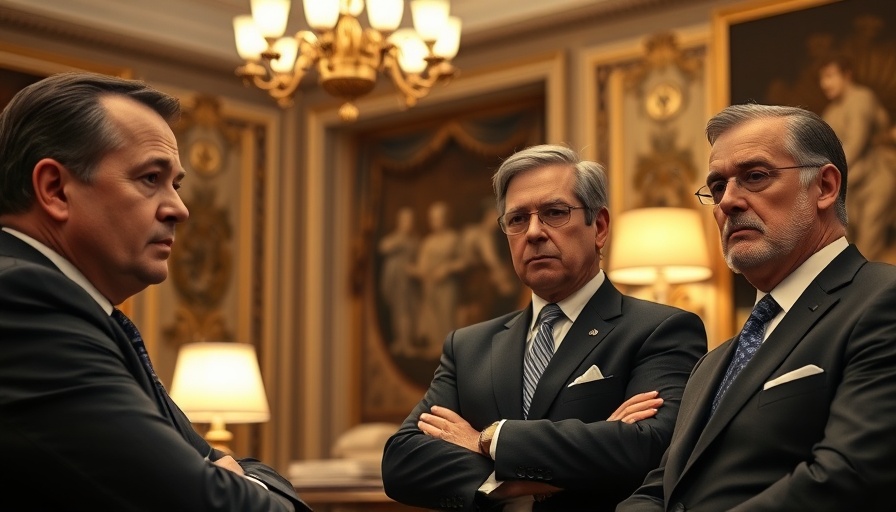
Trump’s Frustration Over Signal Chat Leaks: An Ongoing Saga
In the tangled web of U.S. national security, a recent scandal surrounding former National Security Adviser Mike Waltz continues to ripple through the Washington political landscape. President Trump has not called for Waltz's resignation as a result of the fallout from a Signal group chat leak that inadvertently included journalist Jeffrey Goldberg from The Atlantic. However, sources report that Trump remains frustrated with Waltz, heightening tensions within his administration.
A Closer Look at the Signal Incident
The incident ignited discussions within the White House about the appropriateness of using non-government messaging platforms for sensitive discussions, particularly regarding military operations. The leaked chat, where Waltz and other officials discussed plans for military strikes on Houthi targets in Yemen, raises significant questions about transparency and accountability in government communication. While some officials have characterized the addition of the journalist as an inadvertent mistake, Trump appears more furious about Waltz's connection to Goldberg than the chat's content itself, revealing a multifaceted layer of political dynamics at play.
Keeping a Finger on the Pulse: The President's Response
Former National Security Adviser Waltz described using the Signal app for secure communications as a “mistake.” Yet, Trump’s lack of daily briefings is also under scrutiny, as exemplified by his surprise when informed about the disappearance of four U.S. military personnel during exercises in Lithuania—information that had been publicly available prior to his on-camera remarks.
Political Fallout and Congressional Reactions
Amid this backdrop, congressional leaders have voiced their concerns. Senate Armed Services Committee Chairman Roger Wicker has requested an inquiry into the Signal chat incident, seeking answers on how it unfolded and its implications for national security. This inquiry could determine the administrative accountability and transparency surrounding military operations and communications.
The Broader Implications of Communication Practices
This scenario paints a pressing picture about the evolving norms of communication within high-level government discussions. The rise of private messaging apps has fundamentally changed how officials interact, potentially compromising sensitive information. It serves as a reminder of the crucial need for secure communication methods that don't expose confidential dialogues to unintended audiences.
Future Trends and Considerations
As political observers analyze this incident, it raises questions about future operational protocols. Could this lead to stricter regulations against using non-government platforms for discussions of national significance? Ensuring that communications align with national security standards while fostering transparency is essential as technology evolves at a rapid pace.
Final Thoughts: Navigating Political Sensitivities
The Incident involving Waltz not only highlights the tensions within the Trump administration but also illustrates the inherent vulnerabilities in modern governmental communication practices. As Washington grapples with issues of accountability, security, and transparency, these discussions will undoubtedly persist. Citizens can stay engaged by monitoring how these unfolding narratives shape our national policies and procedures.
Call to Action: Stay Informed
To keep abreast of developments regarding U.S. news and communications ethics in government, stay tuned to reliable news sources. Whether you prefer watching news broadcasts or reading articles online, staying informed is essential to understanding how these issues affect our national security.
 Add Element
Add Element  Add Row
Add Row 



Write A Comment